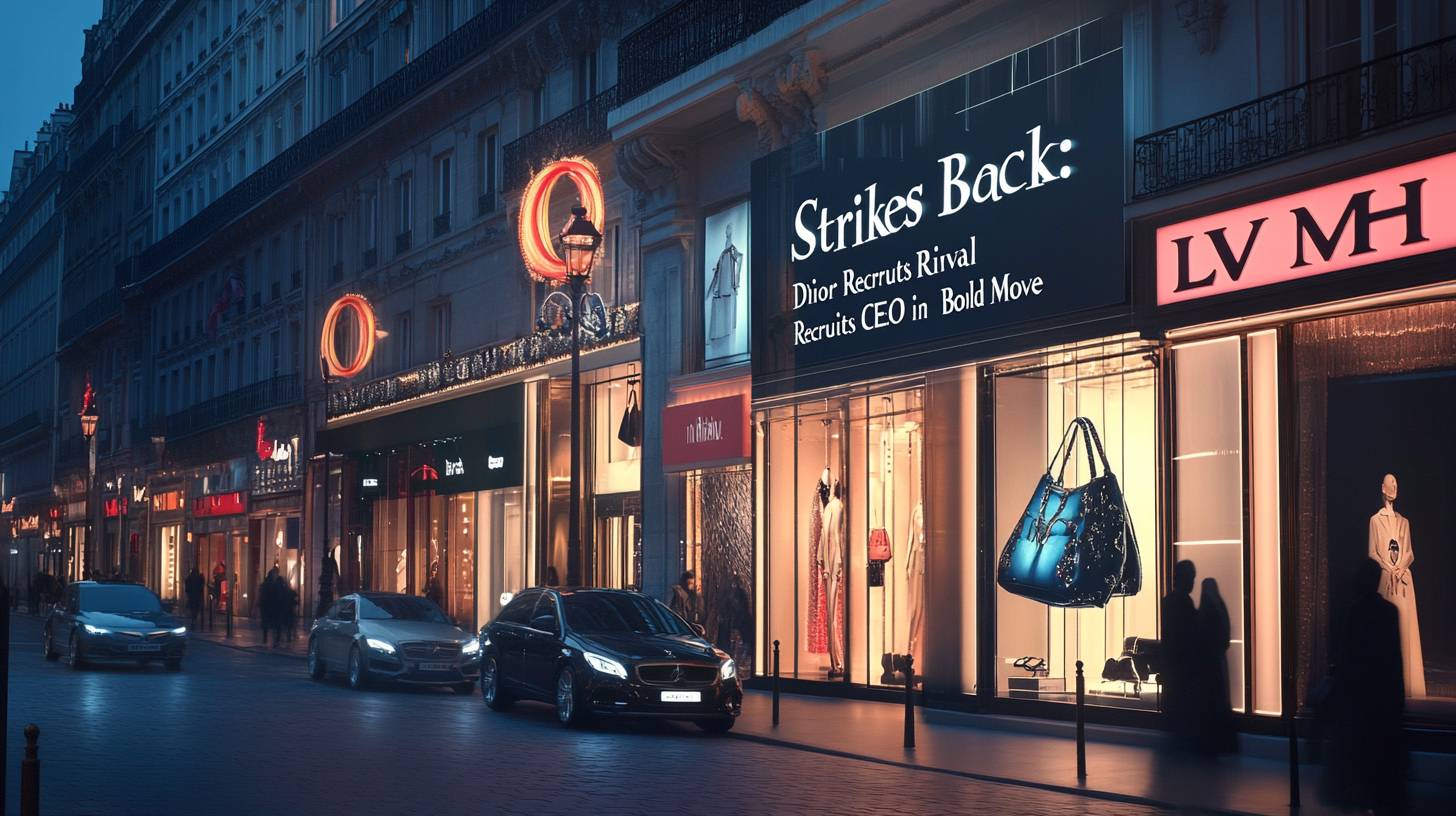
LVMH’s Strategic Leadership Shift Amid Market Pressures
LVMH, the French luxury powerhouse, has made a bold move to enhance its leadership amid a challenging market by appointing Benedetta Petruzzo as the new managing director of Christian Dior Couture. Petruzzo, who formerly held the position of CEO at Miu Miu, a part of Prada Group, will take on her new responsibilities on October 15, succeeding Charles Delapalme. This decision is perceived as a strategic initiative by LVMH to navigate the ongoing slump in global luxury sales and rejuvenate Dior’s operations, specifically in supply chain and product management.
Petruzzo’s appointment is especially significant given her impressive record at Miu Miu, where she was instrumental in driving the brand’s growth despite overarching challenges in the luxury sector. Her tenure at Miu Miu, which experienced a remarkable 93% surge in retail sales year-on-year, highlights her ability to lead a brand through tough market conditions. LVMH’s choice to recruit her signals the company’s aim to capitalize on her expertise to reverse Dior’s recent setbacks, particularly following a damaging scandal that has affected the brand’s reputation and economic standing.
The timing of this leadership shift is crucial, as LVMH contends with growing pressure to uphold its market position amidst a global downturn in luxury spending. The luxury industry, once regarded as resilient, now faces shifting consumer trends and economic uncertainties. For Australian investors and stakeholders in the luxury segment, LVMH’s action may be interpreted as a proactive strategy to protect its market share and rebuild confidence in one of its most renowned brands.
Nevertheless, the initial market response to the announcement was mixed. At the end of trading on Tuesday, Dior’s stock fell by 0.32% in Paris, while LVMH’s stock recorded a slightly larger decline of 0.54% in the U.S. Conversely, Prada Group, which now must address the leadership gap left by Petruzzo, saw a more significant decrease of 5.82% at market open. This variation in stock outcomes underscores the uncertainty within the luxury sector and the potential repercussions of leadership changes during such a pivotal time.
The Fallout of the Dior Bag Scandal on Brand Image and Revenue
The recent controversy surrounding Dior’s manufacturing practices has severely affected the brand’s reputation and financial health, casting a significant shadow over its standing in the luxury market. The disclosure that Dior’s expensive bags were being made in Chinese-operated factories in Italy, where workers faced poor conditions and meager wages, has ignited widespread outrage among consumers and industry analysts alike. This scandal has not only damaged Dior’s image but has also raised pressing questions about the ethical standards upheld by luxury brands, which are typically viewed as exemplars of quality and craftsmanship.
For Australian investors and stakeholders, the ramifications of this scandal are substantial. The luxury market, traditionally driven by exclusivity and prestige, is now facing intense scrutiny regarding its supply chain practices. In an industry where brand reputation is crucial, any adverse publicity can lead to a prolonged loss of consumer trust and, as a result, impact sales negatively. Dior’s association with Italian craftsmanship has historically been a vital selling point, especially in markets like Australia, where consumers are eager to pay a premium for goods that reflect quality and heritage. However, the revelation of these unethical practices has undermined this narrative, resulting in decreased consumer confidence.
The financial impact of the scandal is already apparent. According to LVMH’s first-half financial report for 2024, Dior’s revenue slipped by 1%, with the fashion and leather goods segment facing a 2% decline relative to the prior fiscal year. This downturn is particularly alarming given the broader obstacles confronting the luxury market, including changing consumer preferences and economic uncertainties. For Australian investors, the drop in Dior’s financial performance could indicate a potential threat to LVMH’s overall profitability, especially if the brand fails to recover from the reputational damage.
Moreover, the timing of the scandal could not be more detrimental for Dior, which is already dealing with the wider slowdown in global luxury sales. The luxury sector, having been traditionally robust, is now experiencing headwinds from evolving consumer behavior and economic strains. In this scenario, the scandal has intensified Dior’s challenges, further complicating the brand’s efforts to regain its market position. For Australian stakeholders, this situation highlights the critical need to closely observe the ethical behaviors of luxury brands, as any failures can lead to extensive consequences for both brand value and economic performance.

